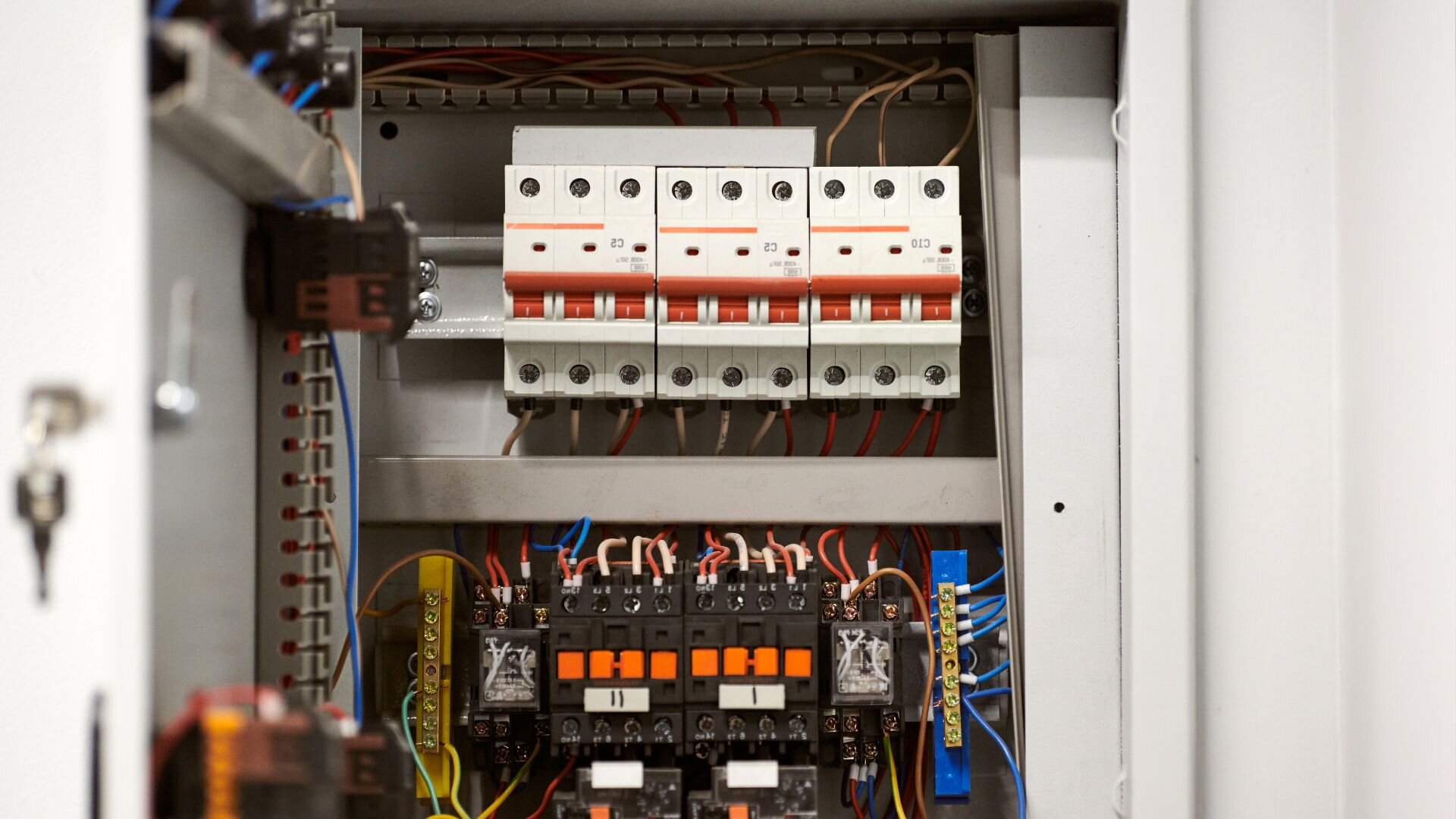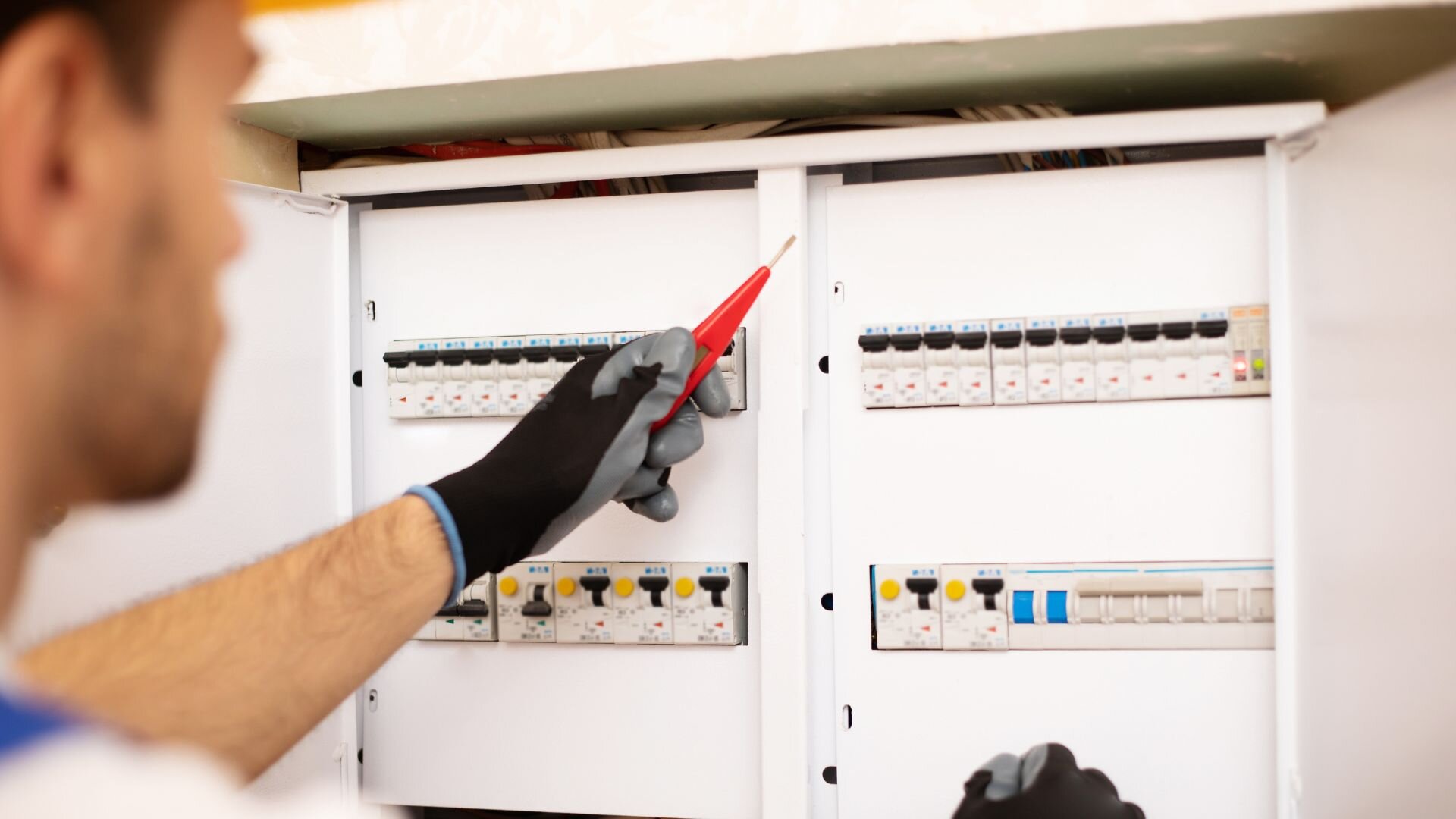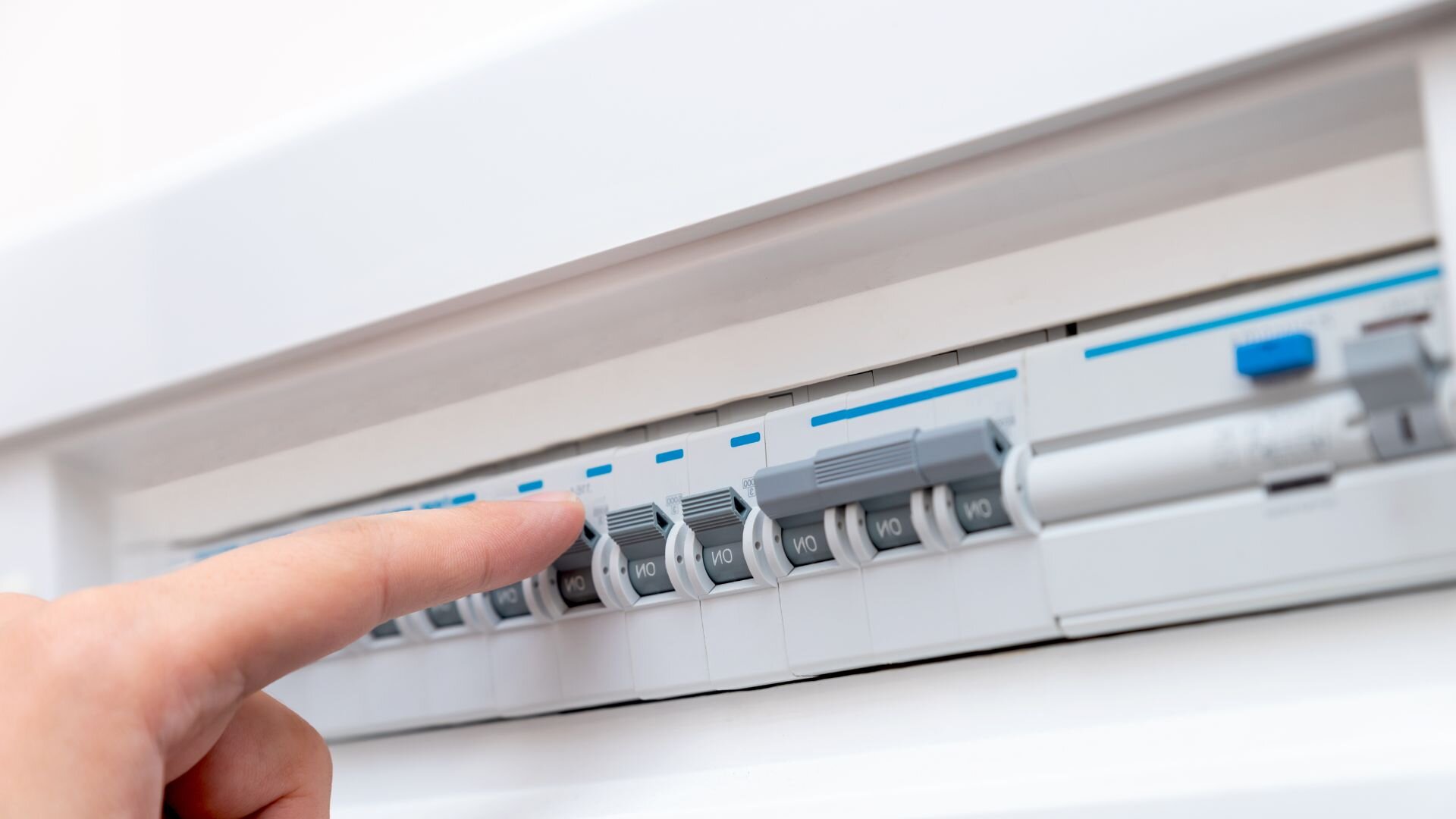Is Your Switchboard Outdated? Upgrade Now!
Worried about having an updated switchboard? Stay safe and learn the signs your commercial building needs an emergency switchboard upgrade to ensure electrical safety and avoid costly repairs.
Ever flicked a light switch, and nothing happened? It can be frustrating, but it’s also a warning sign. Your home’s electrical system relies on a central control panel called a switchboard.
Think of it as the conductor of your home’s electrical orchestra, ensuring each part gets the right amount of power and protecting everything from surges. But like any important instrument, switchboards need maintenance to keep the music going smoothly.
Just like upgrading your phone keeps it functioning optimally, timely switchboard upgrades are crucial for electrical safety and appliance performance. Ignoring warning signs like flickering lights or dimming bulbs could lead to bigger problems down the line, like fires or damage to your appliances.
Understanding Your Switchboard: The Heart of Your Electrical System
As mentioned, the switchboard acts as the central control centre for your electrical system. It receives incoming power, distributes it to various circuits throughout your home or business, and ensures everything runs smoothly and safely.
Inside this metal box lies an orchestra of crucial components:

Fuses or Circuit Breakers
These act as the first line of defence against electrical overloads. Older systems might use fuses, which simply melt and stop current flow when overloaded. Modern systems rely on circuit breakers, which are reusable. They automatically trip (shut off) when a circuit experiences an overload, preventing damage and potential fire hazards.
Safety Switches (RCDs)
Also known as Residual Current Devices, these are lifesavers. They detect imbalances in current flow, which can happen when electricity leaks due to a faulty appliance or damaged wiring. In such cases, RCDs quickly cut off power, preventing serious electrical shocks.
Main Switch
This is the master control for your entire electrical system. It allows you to isolate the entire building’s electrical supply for maintenance or emergency situations.
The key difference between fuses and circuit breakers lies in their resettability. Fuses are one-time-use; once they blow, they need to be replaced. Circuit breakers, on the other hand, can be reset after the overload is addressed, making them a more convenient and safer option. Their automatic tripping mechanism provides an extra layer of protection against electrical dangers.
Signs You Need a Switchboard Upgrade
Your switchboard is the heart of your electrical system, distributing power throughout your home. Like any important system, it can deteriorate over time and may require upgrading to ensure safety and functionality. Here are some warning signs that your switchboard might be in need of an upgrade:

Frequent tripping of circuit breakers
This is a strong indicator of an overloaded circuit. When a circuit is overloaded, it draws more current than it’s designed to handle, causing the breaker to trip to prevent overheating and potential fire.
Flickering lights
Dimming or flickering lights can be caused by various issues, but a faulty or overloaded switchboard can be a culprit. Inconsistent power delivery from the switchboard can lead to these fluctuations in lighting.
Burning smell
This is a serious red flag and requires immediate attention from a qualified electrician. A burning smell near your switchboard could indicate overheating wires or a burning component within the board itself. Don’t ignore this warning sign!
Visible damage
Regularly inspect your switchboard for signs of trouble. Look for rust, corrosion, burning marks, or melted wires. These are all indications of potential electrical hazards that necessitate an upgrade.
Outdated switchboard
Switchboards, like most electrical equipment, have a lifespan. If your switchboard is older than 30 years, it might not be equipped to handle the increased power demands of modern appliances. Newer appliances tend to consume more electricity, and an older switchboard may not be able to handle the load safely.
Adding new appliances
Planning to install a new high-powered appliance like an oven or hot tub? Upgrading your switchboard might be necessary to ensure it can deliver the required power safely and efficiently. Similarly, if you plan to add additional circuits to your home, your existing switchboard may need an upgrade to accommodate the increased capacity.
The Benefits of Upgrading Your Switchboard
Upgrading your switchboard to a modern one offers a multitude of benefits for your home’s electrical system:

Enhanced Safety
Modern switchboards come equipped with features like Residual Current Devices (RCDs) that significantly reduce the risk of electrical shocks and fires, protecting you and your loved ones.
Improved Reliability
A properly functioning and up-to-date switchboard ensures a stable and consistent supply of electricity to your home, preventing frustrating power outages and disruptions to your daily routine.
Increased Capacity
Upgrading your switchboard can provide additional circuits to accommodate the growing electrical demands of your modern home. This is especially important if you plan on installing new appliances or renovating your living space.
Peace of Mind
Knowing your electrical system is up-to-date and meets current safety standards provides peace of mind. You can relax and enjoy your home without worrying about electrical hazards.
Why Choose a Level 2 Electrician for Switchboard Upgrades
Your switchboard is the heart of your electrical system. Upgrading it safely requires a qualified professional. Level 2 electricians hold licenses for complex electrical work. Their expertise ensures your upgrade is done safely and efficiently, meeting all regulations. Don’t risk your safety - hire a Level 2 electrician for a smooth and secure switchboard upgrade.
Ensure Your Electrical Safety With a Switchboard Upgrade Today!
Ignoring warning signs of an outdated or failing switchboard can pose serious safety risks to your home and family. Electrical fires, shocks, and flickering lights are all indicators that an emergency upgrade might be necessary. For peace of mind and improved electrical safety, consider a professional assessment by a qualified electrician.
Our team of Level 2 electricians in Sydney boasts extensive experience in switchboard upgrades. We can diagnose your electrical needs and recommend the most suitable course of action, whether it’s a minor repair or a complete switchboard replacement. Contact us today – your electrical safety is our top priority.